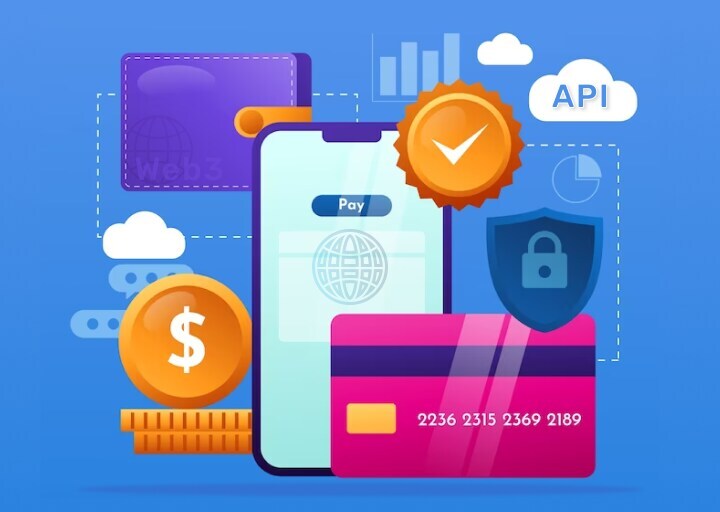Web3, a powerful technology, is expected to play a significant role in the future of financial services and retail offerings. Transitioning from physical goods to digital services can be a complex process, but Web3 offers solutions to overcome challenges and simplify complexity. Built on blockchain networks, Web3 provides decentralized and secure methods for distributing digital goods.
Understanding APIs and Their Role in Web3
To grasp the concept of Web3, it is important to first understand Application Programming Interfaces (APIs) and their significance in both Web2 and Web3. APIs facilitate communication between computer programs. Distributed applications, which utilize APIs to execute functions in another program over a network, play a crucial role. While APIs work behind the scenes, they enable dynamic updates on web pages, such as real-time stock prices and transaction updates.
Bitcoin and the Emergence of Blockchain
Bitcoin, the first cryptocurrency application, utilized blockchain technology. Blockchain is a distributed application that relies on a network of nodes to validate and confirm stored information. APIs play a key role in enabling communication between blockchain nodes, implementing protocols, and processing transactions. Bitcoin’s API capabilities were initially limited, leading to the emergence of other blockchain networks that allowed users to expand functionality by incorporating executable code directly on the blockchain. This advancement, known as “smart contracts,” opened up new opportunities in traditional finance and emerging transaction-based environments. Ethereum, for instance, supports smart contracts.

Foundation of Web3: APIs and Smart Contracts
APIs and smart contracts serve as the foundational technologies that enable Web3. While the exact definition of Web3 remains somewhat ambiguous, businesses can already leverage this capability to perform real work.
Revisiting the API Economy
During the rise of Web2, significant attention was given to the API Economy, a business opportunity created by offering data and services to web users through APIs for a fee. The API Economy transformed businesses into platforms and enabled activities like purchasing stock price data or integrating payment services. However, one limitation of the API Economy was the need to establish user identity and authorization, posing challenges to scalability. Additionally, accommodating multiple payment methods placed a burden on emerging digital offerings.
Web3 Solution
Web3 addresses these limitations by operating in a decentralized manner, allowing for anonymous transactions without the need for prior trust establishment. Web3 relies on mechanisms that enable anonymous individuals to exchange cryptocurrency without establishing a trading relationship. Smart contracts offer businesses three options for providing and expanding digital offerings:
Simultaneous exchange of data and digital services with payment: Smart contracts can fulfill user requests upon receiving funds in the form of tokens.
Immutable record creation on the blockchain for requested and received services: Smart contracts satisfy user requests, and the blockchain records the transaction, facilitating future billing purposes.
Use of the blockchain for identity and authorization establishment: Businesses can avoid building a complete user management and billing system by having users validate their identities through account information, which can be verified through various exchanges.
Notably, off-chain data access in the blockchain is facilitated by a component called an Oracle. This allows service providers to seamlessly integrate data access as an integral part of the blockchain by providing an Oracle.
Embracing the New Digital Landscape
For non-technology businesses aiming to offer digital services alongside physical products, there are crucial considerations. The traditional approach involves building a core platform, including a Web2 interface for users to access services. This requires significant investments in elements like customer support, e-commerce, engineering, product management, operations, and product marketing. Alternatively, adopting a Web3 model can involve delivering a Minimal Viable Product (MVP) through smart contracts and APIs, allowing businesses to receive funds for services without extensive upfront costs. The scalability of blockchain technology further enables the MVP to serve as the foundation for developing a Web2 product.
Conclusion
Developing a digital service for Web3 requires a different mindset and approach compared to Web2. It necessitates expertise in blockchain technologies and consideration of using public or private blockchains. Nonetheless, Web3 is poised to become a prominent technology in financial services and retail offerings in the next decade.